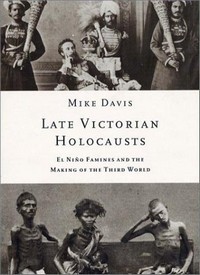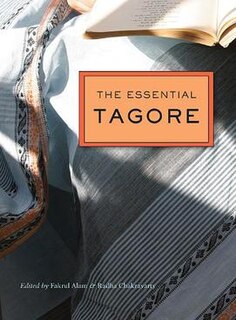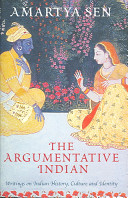
Amartya Kumar Sen is an Indian economist and philosopher, who since 1972 has taught and worked in the United Kingdom and the United States. Sen has made contributions to welfare economics, social choice theory, economic and social justice, economic theories of famines, decision theory, development economics, public health, and measures of well-being of countries.

Arun Shourie is an Indian economist, journalist, author and politician. He has worked as an economist with the World Bank, a consultant to the Planning Commission of India, editor of the Indian Express and The Times of India and a Minister of Communications and Information Technology in the Vajpayee Ministry (1998–2004). He was awarded the Ramon Magsaysay Award in 1982 and the Padma Bhushan in 1990.

Martha Craven Nussbaum is an American philosopher and the current Ernst Freund Distinguished Service Professor of Law and Ethics at the University of Chicago, where she is jointly appointed in the law school and the philosophy department. She has a particular interest in ancient Greek and Roman philosophy, political philosophy, existentialism, feminism, and ethics, including animal rights. She also holds associate appointments in classics, divinity, and political science, is a member of the Committee on Southern Asian Studies, and a board member of the Human Rights Program. She previously taught at Harvard and Brown.

Wendy Doniger O'Flaherty is an American Indologist whose professional career has spanned five decades. A scholar of Sanskrit and Indian textual traditions, her major works include, 'The Hindus: an alternative history'; Asceticism and Eroticism in the Mythology of Siva; Hindu Myths: A Sourcebook; The Origins of Evil in Hindu Mythology; Women, Androgynes, and Other Mythical Beasts; and The Rig Veda: An Anthology, 108 Hymns Translated from the Sanskrit. She is the Mircea Eliade Distinguished Service Professor of History of Religions at the University of Chicago, and has taught there since 1978. She served as president of the Association for Asian Studies in 1998.

Madhu Purnima Kishwar is an Indian academic and a commentator. She is currently employed as a chair Professor in the Indian Council of Social Science Research. Kishwar along with fellow-academic Ruth Vanita co-founded the journal Manushi.

Jean Drèze is a Belgian-born Indian welfare economist, social scientist and activist. He has worked on several developmental issues facing India like social welfare and gender inequality.
A value is a universal value if it has the same value or worth for all, or almost all, people. Spheres of human value encompass morality, aesthetic preference, human traits, human endeavour, and social order. Whether universal values exist is an unproven conjecture of moral philosophy and cultural anthropology, though it is clear that certain values are found across a great diversity of human cultures, such as primary attributes of physical attractiveness whereas other attributes are subject to aesthetic relativism as governed by cultural norms. This objection is not limited to aesthetics. Relativism concerning morals is known as moral relativism, a philosophical stance opposed to the existence of universal moral values.

The capability approach is a normative approach to human welfare that concentrates on the actual capability of persons to achieve their well-being rather than on their mere right or freedom to do so. It was conceived in the 1980s as an alternative approach to welfare economics. In this approach, Amartya Sen and Martha Nussbaum bring together a range of ideas that were previously excluded from traditional approaches to the economics of welfare. The core focus of the capability approach is on what individuals are able to do.

Late Victorian Holocausts: El Niño Famines and the Making of the Third World is a book by Mike Davis about the connection between political economy and global climate patterns, particularly El Niño-Southern Oscillation (ENSO). By comparing ENSO episodes in different time periods and across countries, Davis explores the impact of colonialism and the introduction of capitalism, and the relation with famine in particular. Davis argues that "Millions died, not outside the 'modern world system', but in the very process of being forcibly incorporated into its economic and political structures. They died in the golden age of Liberal Capitalism; indeed, many were murdered ... by the theological application of the sacred principles of Smith, Bentham and Mill." The book won the World History Association Book Prize in 2002.
Amiya Kumar Bagchi is a distinguished Indian political economist. His contributions have spanned economic history, the economics of industrialisation and deindustrialisation, and development studies from an overall Marxist perspective, incorporating insights from other schools of radical political economics, including left Keynesianism. Among Marxists, he is known for his extensive contributions to theories of imperialism and underdevelopment.

Sheldon I. Pollock is a scholar of Sanskrit, the intellectual and literary history of India, and comparative intellectual history. He is currently the Arvind Raghunathan Professor of South Asian Studies at the Department of Middle Eastern, South Asian, and African Studies at Columbia University. He was the general editor of the Clay Sanskrit Library and is the founding editor of the Murty Classical Library of India.
Anne Phillips, is Graham Wallas Professor of Political Science, Professor of Political and Gender Theory at the London School of Economics (LSE), where she is based at the Department of Government. She was elected a Fellow of the British Academy in 2003.
The conventional explanation until 1951 for the cause of famines was the decline of food availability relative to the nutritional needs of the population. The assumption was that the central cause of all famines was a decline in food availability by reason of decline in food production or disruption of food distribution. However this does not explain why only a certain section of the population such as the agricultural laborer was affected by famines while others were insulated from them. On the other hand, inequalities in wealth or ability to exit food shortage areas sufficiently explain such phenomena.
Sunil Khilnani is a professor of politics and history at Ashoka University, India. Previously, he was a professor of politics and the Director of the King's College London India Institute. He is a scholar of Indian history and politics best known as the author of The Idea of India (1997). He was the presenter of a BBC Radio 4 series entitled Incarnations: India in 50 Lives, which was later published as a book in 2016. He was a 2010 Berlin Prize Fellow, and he was also a recipient of the Indian government's 2005 Pravasi Bharatiya Samman award.

The Essential Tagore is the largest collection of Rabindranath Tagore's works available in English. It was published by Harvard University Press in the United States and Visva-Bharati University in India to mark the 150th anniversary of Tagore's birth. Fakrul Alam and Radha Chakrabarthy edited the anthology. Among the notable contributors who translated Tagore's works for this anthology are Amitav Ghosh, Amit Chaudhuri, Sunetra Gupta, Syed Manzoorul Islam, and Kaiser Haq. Martha Nussbaum, a philosopher, writer and critic proposed the book as the 'Book of the Year' in the New Statesman published on November 21, 2011.

The Indian Ideology is a 2012 book by the British Marxist historian Perry Anderson, published by Three Essays Collective. A near-polemical critique of the modern Indian nation-building project, the book consists of three essays originally published in the London Review of Books (LRB) in July–August 2012.
Séverine Marie Paule Deneulin is a senior lecturer in International Development at the Department of Social and Policy Sciences, University of Bath, and a fellow of the Human Development and Capability Association (HDCA); she is also the HDCA's secretary with a place on the executive council.
Meenakshi Jain is an Indian political scientist and historian. A scholar on relations between caste and politics, she is currently an associate professor of history at Gargi College, Delhi. In 2014, she was nominated as a member of the Indian Council of Historical Research by the Indian government. In 2020, she was conferred with the Padma Shri, India's fourth highest civilian award, for her work in the field of literature and education.
List of works by or about Martha Nussbaum, American philosopher.
Lawrence Hamilton is a political theorist and the SA-UK Bilateral Research Chair in Political Theory at the University of the Witwatersrand, and the University of Cambridge, UK, which he has held since March 2016.











